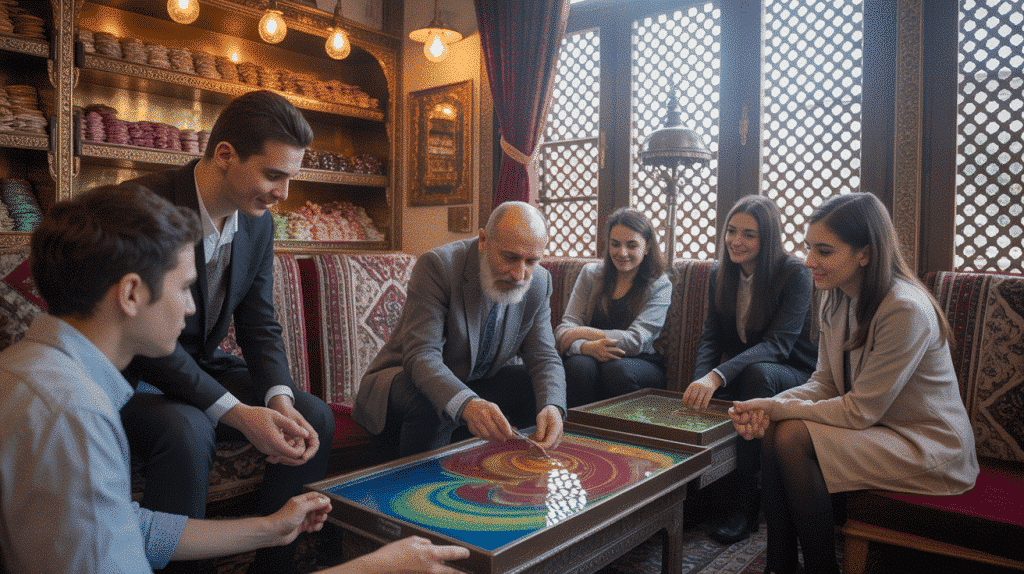Local Traditions and Customs in Ankara: A Guide for International Students
Understanding Ankara’s Cultural Fabric
Traditional Hospitality and Social Customs
Hospitality (misafirperverlik) is paramount in Ankara and across Turkiye. This cultural trait manifests through various customs:
- Invitations for Meals: Locals often invite visitors for tea or meals, viewing it as an opportunity to bond and share. Accepting such invitations symbolizes a gesture of connection and respect.
- First Offer Protocol: When invited for a meal, it is customary to politely decline the first offer. Accepting by the third invitation, however, shows sincerity.
- Respect for Elders: This principle is deeply ingrained in Turkish culture. Younger individuals express deference through actions like standing when an elder enters the room or using polite greetings.
Dining Etiquette and Everyday Practices
Dining customs in Ankara come with their set of expectations:
- Shoes Off Policy: When entering a local’s home, it is a tradition to remove shoes.
- Communal Dishes: Only the right hand should be used when sharing food from communal dishes, reflecting hygiene practices.
- Tea Culture: Turkish tea, served in small tulip-shaped glasses, plays a vital role in social interactions. Refusing tea or not finishing the glass may be regarded as dismissive.
Celebrations, Art, and Craftsmanship
The richness of Ankara’s culture is illustrated through its art and celebrations:
- Carpet Weaving: This ancient art form is significant in Turkish heritage, with unique motifs representative of different regions.
- Turkish Baths (hamam): A legacy of the Ottoman Empire, these baths serve both hygienic and social purposes.
- Ramadan Celebrations: During the holy month, communal meals (iftar) are an important part of daily life, offering opportunities for socializing and community bonding.
Public Behavior and Dress Codes
For international students, understanding public behavior norms and appropriate dress codes is crucial:
- Conservative Dress in Mosques: Women are expected to cover their heads and wear modest clothing, whereas men should avoid shorts.
- Public Displays of Affection: Such displays are generally discouraged, especially in more conservative districts.
- Politeness in Markets: In traditional markets, polite greetings and respect are fundamental, along with a playful spirit of bargaining.
Arts, Music, and Local Identity
Ankara holds a profound appreciation for the arts and cultural integrity:
- Handcrafted Arts: The city is known for its pottery, marbling art, and calligraphy that reflect centuries of artistic tradition.
- Music and Dance: Folk music and dance are integral to local celebrations, showcasing regional diversity.
Summary
Ankara welcomes international students with open arms, inviting them into a rich cultural tapestry woven with traditions of hospitality, respect, and community. Students who adapt to local customs—such as removing shoes indoors, participating in communal meals, and engaging in warm greetings—will find themselves more integrated into Ankara’s vibrant atmosphere.
Whether you’re part of a university admissions team looking to recruit international students or an agency involved in student placement, consider these cultural insights as valuable tools. They not only enrich the student experience but can also enhance recruitment strategies.
Should you wish to learn more about how to study in Turkiye or partner with us in providing opportunities for students, please feel free to contact us.
Take the Next Step with Study in Turkiye
Explore further and make your journey to education in Turkiye a reality!

